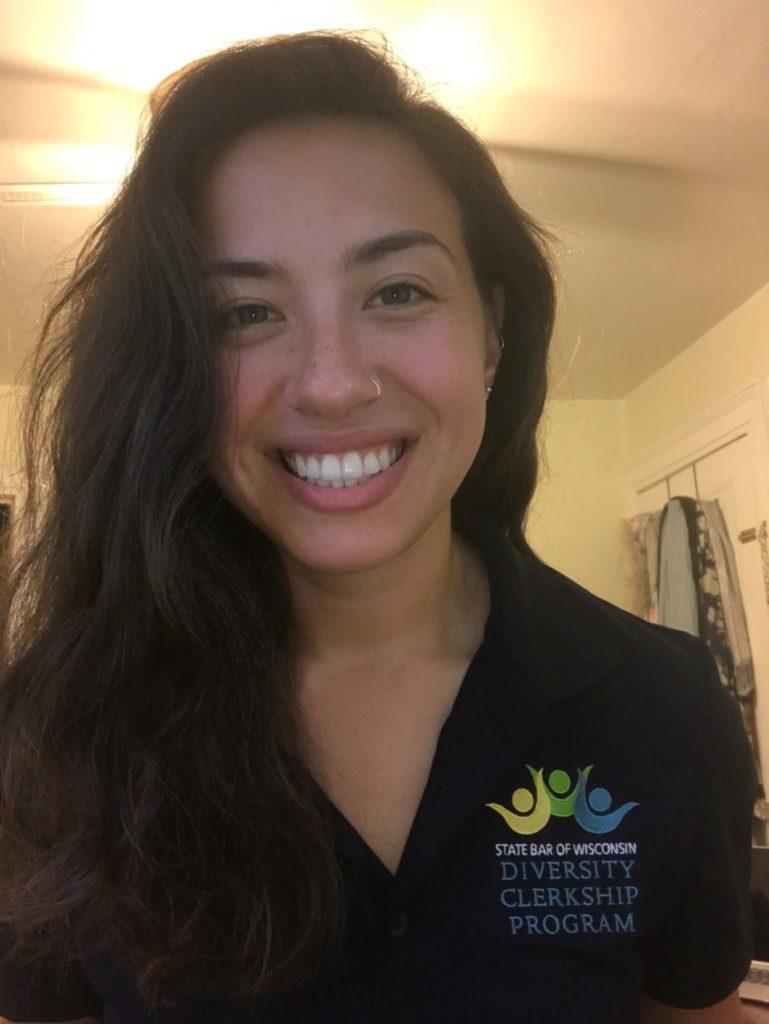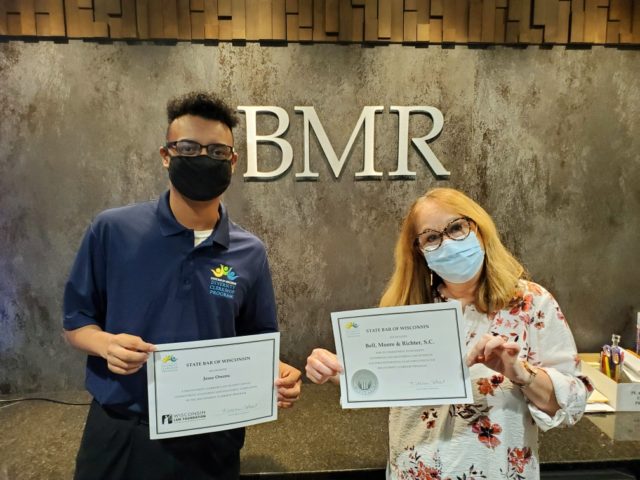Jesse Owens is one of 13 first-year University of Wisconsin and Marquette University law school students who completed the State Bar of Wisconsin’s Diversity Clerkship Program. The program is a summer employment experience that gives law students with diverse backgrounds the opportunity to build legal practice skills and knowledge.
Owens was matched with Bell Moore & Richter in Madison for a 10-week period between his first and second year of law school.
As a young African-American student, Owens said he never felt as disadvantaged as many in the black community are. He didn’t have to worry about food, shelter, getting to school, or being able to participate in extracurricular activities. In college, he performed well academically as an undergraduate student at U.W. and had thoughts about entering law school.
Yet, a meeting with his academic advisor challenged his assumptions.
“My advisor asked me grueling questions about my future,” Owens said. “I confidently responded that I planned to attend law school after my undergraduate studies.
“When he asked me ‘Why?’ I failed to think of anything other than feeling that I possessed a knack for reasoning and forming arguments. He advised me to find my real ‘why,’ because simply being good may not keep one emotionally or intellectually satisfied for their entire life.”
Owens said he went back to the drawing board.
“Many of the classes I took in my undergraduate years outlined how certain demographics were disadvantaged socially and within the legal system. Historically and presently, one of these groups is people of color,” Owens said. “I had always been aware of the disadvantages that exist for racial minorities among many legal aspects, but taking classes that emphasized those disadvantages helped me realize why I had a passion for law.
“Law is a mechanism that is based around justice and equality, but I began to see that a lot of people that look like me do not get afforded both,” Owens said.
“I also saw that social circumstances for people of color put them at a disadvantage economically and educationally. My passion has become to remedy those inefficiencies,” he said.
Owens says he feels a duty to his community and culture to make sure the color of one’s skin does not affect how they are seen by the legal system, employers, or anyone else.
“This is my ‘why,’” Owens noted.
From Teaching to Law
As a high school chemistry teacher working in New Haven Connecticut, Veronica Mantilla was impressed by her 10th grade students. They were resilient, passionate, unapologetic, and full of pride for their culture.
“I was an enigma to them. I wasn’t completely white, I was educated and an outsider,” she said. “Basic answers did not satisfy their desire to learn more about my experience as a Latina woman.”

During Mantilla’s second year of teaching, staff at her school participated in a Diversity and Inclusion workshop. The teachers were asked to self-identify as white or a person of color and move to an area of the room representing their perceived group.
“As I watched people shuffle, I found myself looking at my white-identified peers who sat united and unmoving in their large group display confusion and exchange of empathetic looks,” Mantilla said.
“I wanted to stay, but I chose to walk to the other room, inhabited by the other 25 percent of the staff who identified as people of color,” Mantilla said.
She was challenged by the workshop facilitator who asked her why she chose the group.
“I have repeatedly been challenged to assess my status as a person of color. I continue to question my identity as a woman of color in society and acknowledge this discomfort daily,” she said.
Mantilla, who clerked with Alliant Energy in Madison, says she is attending law school to work against systemic oppression of marginalized groups that the political system currently uses to exploit economic status, class, and race.
“I want to empower others to use their diversity to make the nation more equitable for all and to change the narrative about people of color,” she said.
About the Program
The State Bar of Wisconsin Diversity Clerkship Program has placed 505 students into paid internships since its inception in 1993.
“By growing a diverse and inclusive legal profession, we are better able to serve underserved populations, and advance equal justice for all,” said Andrew Chevrez, chair of the State Bar Diversity & Inclusion Oversight Committee’s Law Student Outreach Subcommittee.
2020 employers include: Alliant Energy, Madison; Bell Moore & Richter, Madison; Fiserv Inc., Gingras Thomsen & Wachs, Madison; Gingras, Thomsen & Wachs, Milwaukee; Hall, Render, Killian, Heath & Lyman, PC., Law Office of Odalo J. Ohiku, Milwaukee; Madison City Attorney’s Office, Milwaukee City Attorney’s Office, Northwestern Mutual, Milwaukee; SmithAmundsen LLC, Wisconsin Department of Justice, Madison; and Zendesk.




























